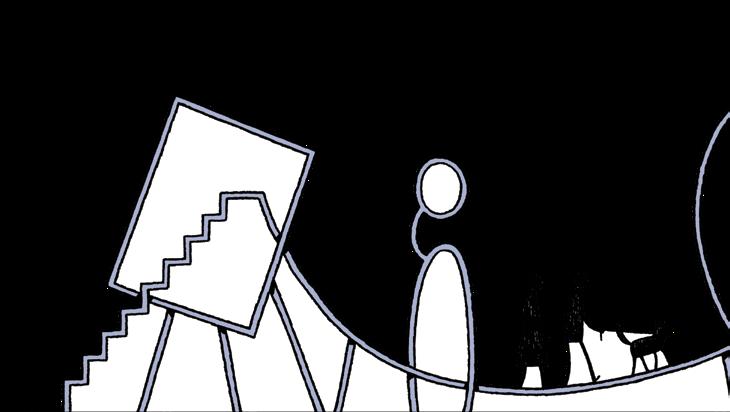establishments’ in Germany. In later trying to shift the blame for the bombing of Dresden, he was sliding out from under a policy that he had been instrumental in pushing through as soon as he became Prime Minister. Wheatcroft fully accepts the necessity of ruthlessness in confronting Hitler, including the destruction of the French fleet at Mers-el-Kébir. Churchill’s role in 1940 was no myth, and Wheatcroft is as enthusiastic as anyone about the great speeches which still have the power to move us to tears, not least the quieter ones such as the wonderful funeral tribute he paid to his bitter opponent Neville Chamberlain, who had for his part recognised Churchill as ‘a real man of genius’, though at the same time ‘a brilliant wayward child who wears out his guardians with the constant strain he puts on them’. If he was ruthless, it cannot also be denied that his modern critics do have a point in calling him a racist. To say that he was an old-fashioned imperialist is to underplay his views, which were extreme even for his time. He hated Indians – not just Gandhi; he despised Islam as much as he despised the Arabs. He denied that any great wrong had been done to the Red Indians of America or the black people of Australia ‘just because a stronger and higher-grade race had come in to take their place’ – all of which was part of his fashionable taste for eugenics. He wasn’t much more indulgent to his fellow countrymen. He sent troops to subdue the Welsh miners; he sent the Black and Tans to terrorise the southern Irish, after threatening to send warships to Belfast to bring the Ulstermen to heel. In the General Strike, he was the most bellicose of ministers (though characteristically generous after it was over). It is scarcely surprising that, even in 1945, he was not really a popular hero. He never won a plurality of the popular vote, even in 1951. At his funeral, the crane-drivers had to be paid overtime to bow their cranes as his coffin passed. Nor was he an infallible strategist – to put it mildly. Wheatcroft records the mournful list of doomed amphibious operations that Churchill pushed through against military advice, from Gallipoli to Dieppe. He reminds us too of the repeated misjudgments that belie Churchill’s reputation as an unheeded prophet: ‘I do not believe we shall see another great war in our lifetime’ (March 1932); the armies of the future would have ‘great prepared lines of fortifications which it will be very difficult for the other army to break through’ (1938); ‘this is not a war of vast armies,
firing immense masses of shells at one another’ (February 1941). At one time or another, Churchill derided the relevance to modern warfare of the submarine, the tank and even aircraft. But there is one prophecy that haunts us to this day, one legendary warning which is the ultimate foundation of the Churchill cult, and which this book is really all about. Churchill puts it with scorching force in The Gathering Storm and also in his famous Iron Curtain speech at Fulton, Missouri: ‘Last time I saw it all coming, and cried aloud to my own fellow countrymen and to the world, but no one paid any attention. Up till the year 1933 or even 1935, Germany might have been saved from the awful fate which has overtaken her and we might all have been spared the miseries Hitler let loose upon mankind. There never was a war in all history easier to prevent by timely action than the one which has just desolated such great areas of the globe.’ But what timely action? Wheatcroft reminds us, as Robert Rhodes James did before him in Churchill: A Study in Failure, that Churchill reacted to the occupation of the Rhineland only with disapproval. Neither then nor earlier or later did he call for pre-emptive military force. As for British rearmament, which was proceeding at quite a rate throughout the period, was it better to rearm quietly or to rearm noisily, as Churchill had at the Admiralty in the years leading up to 1914, with no better deterrent effect? And, shameful as Munich was, Churchill himself acknowledged that it gave the Allies the moral high ground, in the marvellous speech he gave to the Commons on the Sunday that war was declared: ‘In this solemn hour, it is a consolation to recall and dwell upon our repeated efforts for peace. All have been ill-starred, but all have been faithful and sincere … in our own hearts this Sunday
‘I’ve invented this thing called the dog kennel – all we have to do now is domesticate a wolf’
morning there is peace. Our hands may be active, but our consciences are clear.’ Ever since, Wheatcroft insists, the lessons of Munich have been misread again and again: in Korea, in Vietnam, at Suez, in Iraq. By standing up against a dictator, Churchill still warns us from the grave, we can avoid great evils, perhaps without a shot being fired. It is a consoling mantra masquerading as grim realism, because it so often relies on optimistic assumptions that have no basis in fact: that the dictator will back down, or that his people will rise up against him, or that the Americans will rush to the aid of their British ‘cousins’. These are all ways of dodging the tragic dimensions in life, and part of Churchill’s undoubted greatness was that he usually didn’t. Churchill’s Shadow is a wonderful revisioning of the sacred monster which, curiously, leaves you more in sympathy with him, because it never tries to gloss over his enormous faults, while giving full play to his amazing qualities. Whatever else, it should plant in all of us a determination never to use the word ‘Munich’ again, except to refer to a nice rococo city in southern Germany.
Chesterton revisited DAN HITCHENS The Sins of G K Chesterton By Richard Ingrams Harbour Books £20 Invited to give a reading at the Catholic Poetry Society, G K Chesterton sat in miserable silence, unable to remember a single poem. ‘Will you recite The Donkey?’ someone asked. ‘Don’t know it,’ came the doleful reply. He brightened only when an audience member produced a volume by Chesterton’s friend Hilaire Belloc. ‘Ah! That’s real poetry.’ Perhaps no writer of Chesterton’s stature has exhibited such a complete lack of literary vanity. He dismissed his writing as hackwork, was bemused when admirers quoted his words back to him (‘I may have written something of the sort’) and had not a trace of the writer’s usual vices, envy and backbiting. This humility, combined with his gifts for friendship and personal kindness, has moved some Catholics to propose him as a candidate for sainthood. But the Church has so far refused – quite rightly, as far as Richard Ingrams is concerned. In this short but ambitious book, Ingrams aims to undermine the generally accepted story of Chesterton’s life as one of childlike innocence. And it all goes back to that man Hilaire Belloc. For all his brilliance, Belloc was The Oldie September 2021 51






































